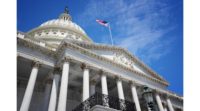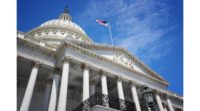The Facial Recognition and Biometric Technology Moratorium Act, originally introduced in 2020, was reintroduced June 15 by Sen. Edward Markey (D-Mass.).
The legislation would impose a blanket ban on most federal, state and local use of nearly all biometric and related image analytics technologies, which threatens the benefits of facial recognition technologies used by law enforcement, including:
- Identifying individuals who stormed the U.S. Capitol on Jan. 6.
- Reuniting victims of human trafficking with their families and loved ones.
- Detecting use of fraudulent documentation by non-citizens at air ports of entry.
- Aiding counterterrorism investigations in critical situations.
- Exonerating innocent individuals accused of crimes.
The Security Industry Association (SIA) publicly opposed the bill’s initial introduction, which largely resembles the version put forth in the 117th Congress.
“Rather than impose sweeping moratoriums, SIA encourages Congress to propose balanced legislation that promulgates reasonable safeguards to ensure that facial recognition technology is used ethically, responsibly and under appropriate oversight and that the United States remains the global leader in driving innovation,” said SIA CEO Don Erickson.
Such approaches and recommendations have been reflected in the following areas supported by SIA: The U.S. Innovation and Competition Act — applauded by SIA earlier this month following its passage in the Senate — which authorizes the National Science Foundation (NSF) to disburse funds for research and development initiatives on key technology areas, including biometrics; Increased funding to the National Institute of Standards and Technology (NIST) Image Analysis Unit, which will expand NIST’s testing infrastructure and computing power necessary to enhance NIST’s Facial Recognition Vendor Test Program; and direct additional NSF funding to historically Black colleges and universities, Hispanic-serving institutions and other minority institutions to develop interdisciplinary research focused on facial recognition algorithmic development to provide students with firsthand knowledge about the challenges and opportunities presented by these advanced technologies, including issues surrounding performance differentials and bias mitigation.
SIA supports policies that provide innovation in security and life safety technologies and aid U.S. leadership in key technology areas, including biometrics. In May, SIA joined the U.S. Chamber of Commerce and a group of other associations in sending a letter to President Biden expressing concern with blanket moratoriums on facial recognition and advocating for a combination of technological safeguards and policy measures to effectively mitigate any risks associated with the technology and ensure that it is developed and used responsibly.
SIA also recently sent a letter to President Biden and Vice President Harris urging the administration and Congress to consider policies that enable American leadership in developing biometric technologies; issued policy principles that guide the commercial sector, government agencies and law enforcement on how to use facial recognition in a responsible and ethical manner; released comprehensive public polling on support for facial recognition use across specific applications; and published a list of successful uses of the technology.



